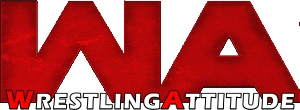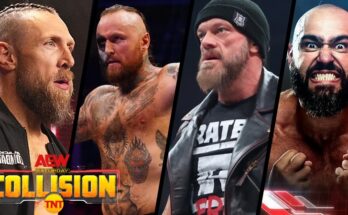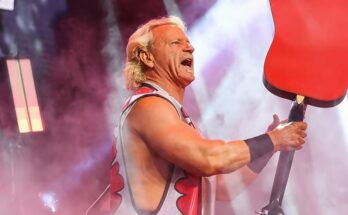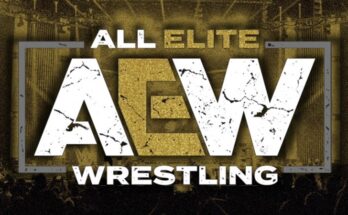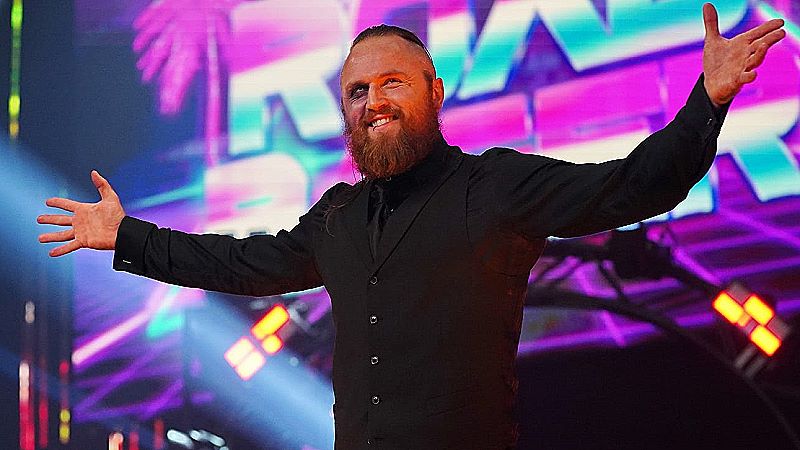
Malakai Black joined The Wrestling Perspective Podcast to talk about his transition from his time in WWE to working for AEW. And though it’s only been a few weeks, Black is already having a great time in his new promotion.
“It really is an incredible company,” Black said. “I don’t know how to explain this. I feel so good being in AEW. I feel really relaxed in a way that I haven’t been able to relax in quite awhile.”
Black also talked about his mindset regarding his AEW character and his similarities between his WWE character, Aleister Black. He revealed he wanted to do a few things in his new role that he wanted to do in his WWE run, before eventually taking the character in a whole new direction.
“I wanted to create something that was already there,” Black said. “It had to fit the wheelhouse. If I would’ve come out in a pink suit with a clown wig or anything, people would’ve been like ‘what?’ It would’ve been vague. And I wanted to rectify a few things first, and I’m going to do that still, with stuff that I always wanted to do with previous installments of the character. I have so many ideas for this. And once that’s established, I want to kind of deviate from the norm a little bit. Not turn away from it, but give it a different direction. But in order for me to do that, I have to put the bricks in first before we can. People have to have a level of accustomed viewing to this character before I can go ‘hey, let’s flip the switch on it.’”
Co-host and Rancid guitarist Lars Frederiksen later asked Black what he was motivated by; money or creative freedom. For Black, the answer couldn’t be easier.
“Creative freedom. I don’t care about money, never have,” Black said. “I’ve always been good with money too. I’ve been able to put both of my parents into retirement, I’ve been able to help my brother with his house, make savings for my parents with my payments, put enough money to the side that I can live comfortably. I don’t spend a lot of money, never have. If it was about the money, I would’ve yes to everything that was thrown to me, and I didn’t. And I think, in a way, it was a big part of the departure. Cause there’s only so much you’re willing to do, and if you already have the mentality of ‘okay it’s not going to work out’ and I said this in a different interview a couple days ago. If your mentality is ‘alright, this is the last try I’m going to give it. And if it’s not going to work then screw it, I’m going to do something else.’
“So money has never really been a motivation for me. Is it comfortable? Of course. At the end of the day we all have bills to pay. I want to put my kids through college, I want to make sure I don’t have to worry about parts of the rest of my life, I want to be able to make sure my house is paid off and all that stuff. But more importantly so, I want to retire from this business with peace of mind, knowing that I have done everything I could’ve done creatively. Even if everything comes crashing down, thundering down, and it doesn’t go anywhere, I want to die on my sword, not on someone else’s sword. So to answer your question, creative freedom for me is much more important than any monetary insert for me.”
Black then transitioned into talking about the communication backstage at AEW. He praised AEW promoter Tony Khan for being open for communication with everyone on the roster, and how there was a veteran around every corner to help talent and make sure their ideas come to fruition.
“From what I see, it’s the open line of communications with Tony that keeps everyone sane,” Black said. “Tony is open for everything, wants to talk to everyone, has ideas for everyone. And gives everyone a platform to express and create, and if you struggle Tony is there to help you. And other people are there to help you too. We’ve got people like Frankie Kazarian, Christopher Daniels. We’ve got Billy Gunn. Jerry Lynn, freakin Jerry Lynn. We’ve got Dean Malenko. So there is this wealth of knowledge that is there, that is there to help you. It’s not like, where a lot of times with the WWE, I felt ‘we’ve got to come up with something. Come on guys, we’ve got to come up with something. It’s gotta happen right now! This is what they want, let’s go!’
“I get it, there’s pressure, and there needs to be a level of pressure. You need to be able to withstand that. But I feel here, here it’s ‘hey we’re going to figure it out. We are going to figure it out.’ And they mean it, they are going to figure it out. That in my opinion is valuable. There’s nothing more difficult than trying to figure out when you’re involved with a platform the size of AEW. You want to have it figured out while you’re there. You want to be able to present this straight away to this audience. And not everybody has that. So people are given enough time and enough momentum and opportunity to go ‘hey, you know what? we’re going to figure it out.’ And that is just very important because there’s a lot of very valuable and exciting new talents to watch.”
One thing that’s important to Black is that he continues to learn and grow, even though he’s two decades into the business. That’s why he continues to seek feedback backstage at AEW, including consulting with a Hall of Famer over promos.
“Right now one of the things I’ve been doing is I’ve been talking to Jake, Jake ‘The Snake’ Roberts, about like his promo work and stuff,” Black said. “I just want to get inside his head. I want him to talk, right? Twenty one years in or not, that’s Jake ‘The Snake’ Roberts. You’d have to be an idiot not to talk to him about that stuff. That’s what it’s all about. And I think that a lot of the old timers, they have so much valuable information. They have such a great perspective on wrestling, and they have so many things to tell you.
“Again, I feel very fortunate to have landed in another company where people like that are around to help me. Because I am never above help, I am never above asking, I am never above getting feedback. I love getting feedback, because it’s the one thing that’s always made me better. Not once have I gotten feedback and went ‘well that was pointless.’ Not once. And even if that comes across, you can go ‘okay, I can generally say that doesn’t help me. But now I know.’ There’s something to learn in every angle you twisted. It’s just about learning to see that knowledge, learning how to see that improvement, learning how to take that feedback, and even if that feedback isn’t something you expect, but then what can you take away from it? There’s always something for it.”
You can watch the full interview below.
